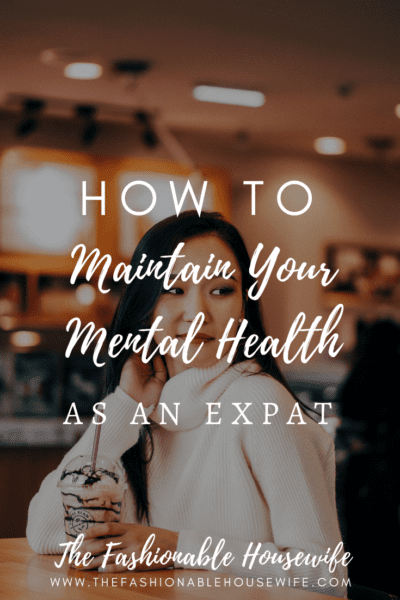
Studies from different insurers indicate that expatriate mental health claims are on the rise across the board, all over the world, with one insurer reporting that mental health claims from Europe rose by 33% from 2016-17, and the claims from the Middle East and Africa rising by 28%. Other regions report less dramatic but still significant increases.
Whether it’s due to better reporting and diagnosis, or because the world is becoming just a little bit harder to cope with, it’s clear that mental health issues loom large in the world of expats and other long-term foreign residents across the world. Poor mental health can directly affect an expat’s quality of life as well as their ability to be productive. Many businesses are also starting to feel the crunch brought about by mental health issues impacting the effectiveness of their employees.
Here are some recommendations for expats currently suffering from mental health issues as well as those who want to avoid these problems from severely impacting their lives abroad.
Check if your employer has a program that covers mental health issues
Many businesses today provide employee assistance programs intended to support employees through their transition as an expat. Counseling sessions and therapy may be available to you through these programs. You may also get to meet other employees who are currently going through the same thing you are, which allows you to discuss your issues with someone who truly understands your situation.
Get enough sleep
The lack of sleep can exacerbate underlying mental and emotional health issues and make it difficult for you to be healthy and productive. Getting 7-9 hours of continuous, high-quality sleep each night is recommended by the Mayo Clinic and other leading health authorities. In cases that it may be impractical to get that much sleep, taking a siesta when you start to feel overly lethargic can be a good way to cope.

Reduce your social media intake and focus on making new friends and contacts locally
Social media is a great thing, but it often presents an idealized picture of people’s lives that often has little bearing on how things actually are. What’s more, the fear of missing out often looms large among expats, and seeing these idealized posts on social media can trigger anxiety and depression.
Reducing your social media intake to just a couple of minutes a week can be a great start, though you might find it difficult at first. In any case, being in a foreign country will afford you countless new opportunities to meet new people and have interesting experiences. Try to focus on building and maintaining real-life relationships in your host country and moderate your time in the virtual world of social media.
Don’t forget to take care of your physical health
A healthy body makes it far simpler to maintain a healthy mind. Try to actively take steps to eat healthier and exercise more if you aren’t already. Allocate at least 3 hours of moderate exercise every week, and keep your consumption of sugar, alcohol, and processed foods at a minimum. Also, make sure that you have the right kind of international health insurance from your employer. If you need to take out an international health insurance policy yourself, go with a specialized company such as Now Health International, as they tend to better understand the needs of expats much better than other insurers.



